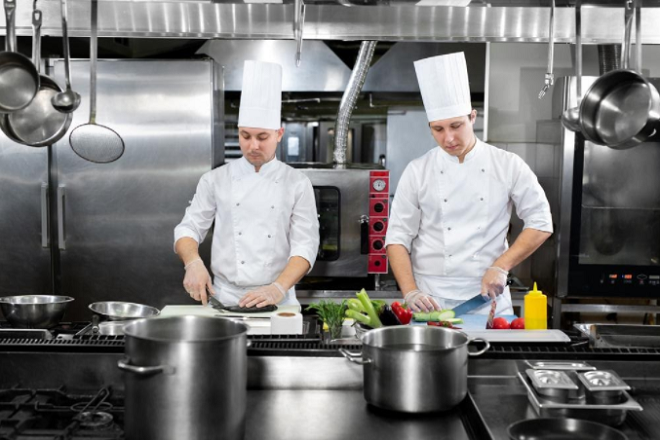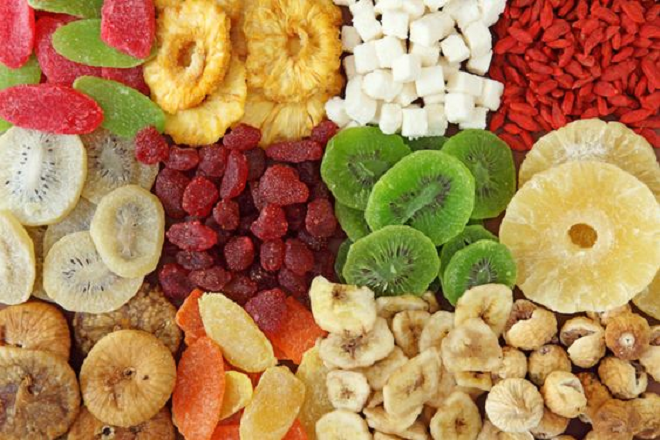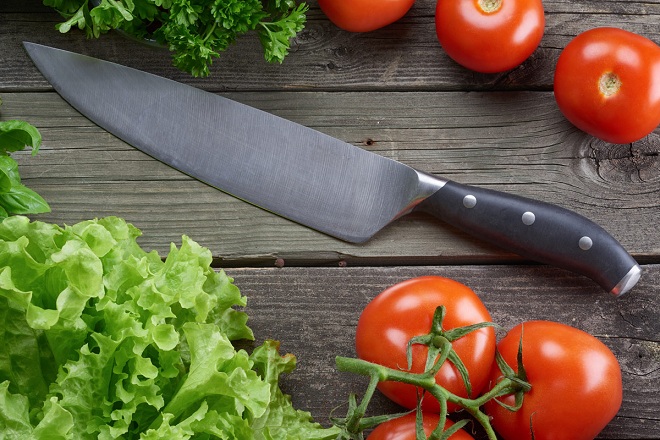Many well-known commercial kitchens have shut down because they didn’t follow proper food safety guidelines. Food safety tips refer to the preparation, handling, and preservation of food in a commercial or ordinary kitchen without contaminating the food and causing food poisoning to your customers or your household members.
Food Safety Tips for Your Commercial Kitchen
That’s why it’s important that you and your employees follow the essential food safety tips to maintain a clean and health-prioritized commercial kitchen. Here are 10 food safety tips that you can follow to do just that:
Everyone should wash their hands
This tip is very important because this is where things can go downhill if not followed. Your hands are the carriers of bacteria wherever you go, so make sure to wash your hands when you’re in your commercial kitchen before you start preparing food and tell your employees to do the same.
If you or your employees don’t wash your hands, then you can risk spreading bacteria to the food that you prepared or while preparing it, which can cause your customers to get food poisoning.
You can even have small hand washing stations built in the kitchen for the ease of your employees because sometimes they can forget to wash their hands or not have enough time to go to the washroom to wash them because of the hectic atmosphere of the kitchen and needing to prepare multiple orders for customers.
Wear plastic gloves
As we all know that germs can spread from bare skin contact; the best way to avoid that and help you and your employees in case you don’t have time to wash your hands is wearing gloves.
However, you should keep in mind that you need to change them once they’re contaminated or that you’ve used them for too long. This way, you can avoid contamination and stop germs from spreading to other ingredients, especially when you’re handling raw ingredients such as raw meat and eggs.
There are many restaurants and bakeries where employees wear gloves when delivering food or taking out food from the display boxes to give to their customers. These restaurants and bakeries also offer self-service where customers can pick out food that they like themselves while wearing gloves.
Don’t let sick employees prepare the food
Another important tip to keep that you should follow is that if one of your employees gets sick, then you shouldn’t let them prepare the food and give them a day off instead so that they don’t risk getting other employees sick too.
According to research conducted by the CDC’s Environmental and Health Sciences branch, around 5% of workers have reported that they had to prepare while being sick and suffering from diarrhea and vomiting. This is extremely dangerous as it can cause customers to get infected as well or cause food poisoning.
Wash fruits and vegetables before using
Whenever you’re using food ingredients such as fruits and vegetables while preparing food, make sure to wash them thoroughly even after peeling their skin off. This way, you can remove all of the germs that are present on the skin and inside the fruit or vegetable and stop them from spreading to other ingredients or foods that you prepared.
If you don’t wash them, the germs can travel to the food that you prepared, increasing the chances of your customers getting diseases like Salmonella from eating your food. According to recent studies, tomatoes are the most common vegetable to have Salmonella, that’s why you should wash them very carefully and thoroughly.
Check all gas appliances in your commercial kitchen
Many incidents have happened in commercial kitchens, such as explosions or harmful gas leaks due to gas appliances not working properly or being too old-fashioned.
That’s why it’s important to have a gas safety check performed by a registered Gas Safe Engineer once a year, who can also provide you with a gas certificate that will cost about £30-£150. This tip not only prioritizes the safety of your customers but also the safety of your employees.
Prevent cross-contamination
The main cause of all food illnesses is cross-contamination. This can occur from germs inside raw foods that travel to already cooked and prepared foods. These raw foods are raw meats, seafood, and eggs.
The best way to avoid this is by making sure that you separate the utensils that you used on the raw foods and not use them again on already prepared foods. For example, don’t use cutting boards or knives that have already been used to cut raw meats.
Don’t use expired ingredients
Expired ingredients are the most common way to cause your customers to get food poisoning. That’s why you and your employees should check all of your ingredient’s expiry dates in your food storage to make sure that you’re not using expired ingredients.
You can even mark expiration dates on food items by labeling them with the help of masking tapes and markers. When your food ingredients are delivered, you or your employee should check their expiration date so that in case you notice something wrong; you can return the ingredients on the spot.
Food should be stored at the right temperature
When it comes to storing food, one of the most important things that you need to be careful about are the temperatures at which the food is stored. These temperatures are different depending on what type of foods you’re storing. Here are 2 examples of what type of foods should be stored in what type of temperatures:
Chilled Food
Chilled foods should be stored at temperatures 41°F or below. These chilled food items can’t be taken out of refrigeration for more than 3-4 hours; otherwise, they’ll go bad, and you’ll have to throw them out.
Commercial kitchens should have a thermometer that is installed near the refrigerator or refrigeration room so that employees can monitor the temperature of it and make sure that it doesn’t go lower or higher than the desired temperature.
Dry Food
The conditions of the room that dry foods are stored in should be dry, and a bit chilled, the temperature of this room should be 10°c-15°c (50°F-59°F) to prevent the food from getting spoiled. It should be cleaned and sanitized on a daily basis, and it should be free of pests and insects.
Provide food safety training to your staff
If you’re running a commercial kitchen and haven’t trained your kitchen staff about food safety, then it can become a problem for you, as your employees will not only put your customers’ health at risk but also damage the reputation of your commercial kitchen.
That’s why it’s important that you provide your kitchen staff with proper food safety training or hire staff that is already trained about food safety. There are many benefits of food safety training such as:
Decreasing chances of causing food poisoning
Food poisoning can easily be caused by things like cross-contamination, not storing food properly, the use of expired ingredients, etc. However, with the help of food safety training, your employees will know all of the precautionary steps taken to prevent food poisoning.
Not letting food go to waste
Another common thing that occurs in commercial kitchens is that many food items go to waste and are thrown out because they get spoiled from either not being stored properly or cross-contamination. If the kitchen staff is trained, they can help decrease the amount of food that goes to waste by handling it with care which benefits the environment too.
Employees can identify food safety threats
Once your employees are well trained about food safety, they’ll be able to identify food safety hazards very quickly as well as find their solutions.
Wash your kitchen utensils and equipment
Bacteria don’t just grow and crawl into foods; they can also grow on kitchen equipment, utensils, and kitchen workstation counters. When kitchen staff is preparing food while using any of the kitchen equipment, it’s important that they’re washed or sanitized so that they don’t spread bacteria from them to the food that the staff is preparing.
Your employees should take extra care to clean and wash the utensils before and after using them on raw food items and ingredients. For example, if you’re using a kitchen knife to cut raw meat, don’t use that same knife to cut vegetables or use it on already prepared food. You must first wash that knife thoroughly with hot water and soap to remove the germs from it and then use it.
Conclusion
By following food safety tips, you will be able to successfully run your commercial kitchen while prioritizing the health and safety of your customers and staff. On that note, make sure all your staff adheres to kitchen safety tips and are well-trained on these regulations. Good luck!
Shoaib provides ghostwriting and copywriting services. His educational background in the technical field and business studies helps him in tackling topics ranging from career and business productivity to web development and digital marketing. He occasionally writes articles for gas safety certs.




